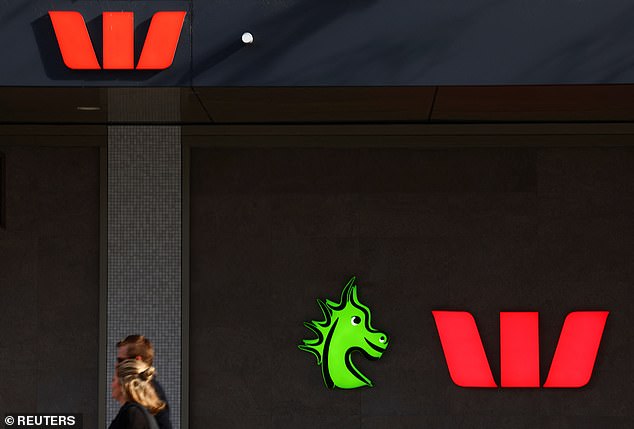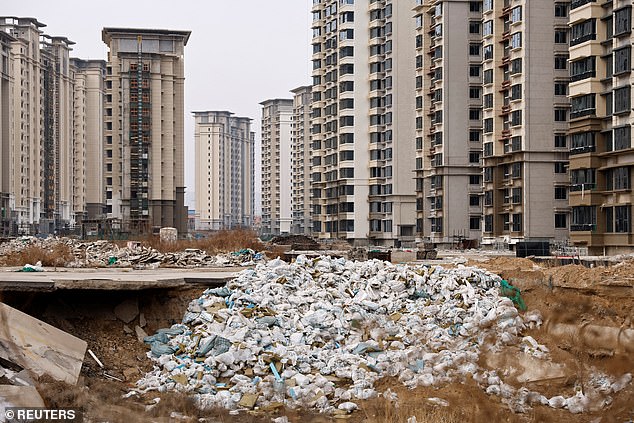Westpac fears the price of Australia’s biggest export will crash over Christmas this year because China now has too much steel following the collapse of a mega apartment developer.
Evergrande’s collapse means China is building fewer apartments and millions of new homes remain empty, giving rise to high-rise ghost cities.
The debt crisis facing Chinese developers will also hit demand for Australian iron ore, the commodity used to make steel, meaning less tax revenue for the Australian government.
Iron ore is now trading at $110 a tonne, but Westpac senior economist Justin Smirk warned the price will fall 23 per cent by Christmas to $85 a tonne, a level not seen since November 2022.
Mr Smirk said China now had too much steel, which meant it was exporting more.
“China’s record level of steel exports is a concern for the rest of the world and points to an oversupplied Chinese market,” he said.
‘Overall, China’s steel demand remains weak due to robust crude steel exports, rising steel inventories and continued compression of steel margins as input costs rise in the face of falling steel prices.
“We see little reason to change our long-held view that rising supplies and falling demand will push iron ore prices lower in the second half of this year.”
Westpac fears the price of Australia’s biggest export could crash before Christmas because China now has too much steel following the collapse of a mega apartment developer (pictured are unfinished residential buildings in Shijiazhuang, Hebei province)
The World Steel Association revealed last month that China’s crude steel output had fallen 1 percent in 2024, due to the melting of iron ore and metallurgical coal into steel.
Production was also lower in the European Union and North America.
China now has a surplus of steel after a Hong Kong court in January ordered the liquidation of heavily indebted apartment building giant Evergrande, leading to lower demand for Western Australian iron ore from that country, which is Australia’s biggest trading partner.
The Australian government is also pessimistic about iron ore prices, predicting in the May Budget that the spot price would fall to just US$60 per tonne in the March quarter of 2025.
“The outlook for the terms of trade is highly uncertain, reflecting potential volatility in commodity prices,” the Treasury said in May.
‘Recent developments in China’s steel demand outlook and a modest improvement in iron ore and metallurgical coal supplies have driven a marked correction in iron ore and metallurgical coal prices.’
This followed China’s steel output hitting near-record levels in 2023 as it imported a record level of iron ore.

Iron ore is now trading at $110 a tonne, but Westpac senior economist Justin Smirk warned the price will fall 23 per cent by Christmas this year to $85 a tonne, a level not seen since November 2022.
While Treasurer Jim Chalmers announced a $9.3 billion surplus for 2023-24, a deficit of $28.3 billion is forecast for 2024-25 as falling iron ore and coal prices cut into corporate tax revenues.
Iron ore was Australia’s largest export in 2023, worth $136 billion, accounting for 20 percent of the country’s exports.
Western Australia produces 98 per cent of the world’s iron ore.
The state Department of Energy and Mines said one tonne of steel production requires 1.4 tonnes of iron ore and 800 kilograms of coal.
Chinese Premier Li Qiang visited Australia last month, following the removal of punitive Chinese tariffs on Australian agricultural exports, including wine and barley.

